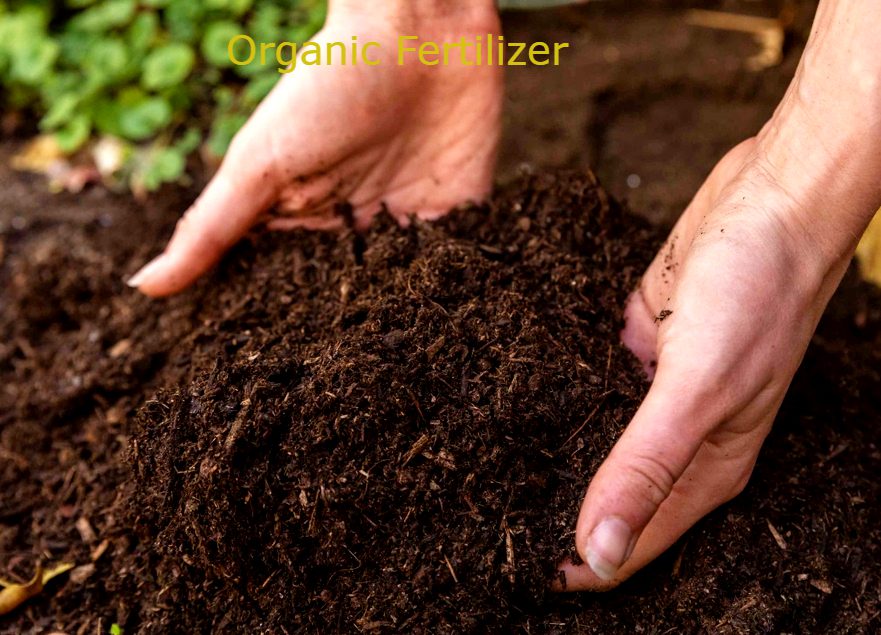Organic Fertilizer
Organic Fertilizer, often known as compost, is a blend of materials used to enrich the soil and increase its productivity. Compost or organic fertilizer is produced by the decomposing of plant matter as well as food scraps and scraps from the kitchen. Gardens, landscaping, horticulture, agriculture, and farming all benefit from increased soil richness thanks to the use of compost. Compost has several uses, but the most essential ones are as a fertilizer for plants, a soil amendment, a way to boost the soil’s humic acid content, and a source of beneficial microbial colonies that can bind soil pathogens. Composted material can be used in place of expensive and potentially harmful chemical fertilizers. Pure, healthful, sanitary, and organic food is obtained through the use of compost.
How to Work Organic Fertilizers or Compost
Compost strengthens the soil, allowing it to keep water longer. You’ll water your garden less, saving money and water. Improved soil structure allows water and nutrients to reach your roots unobstructed. Compost fertilizer helps regulate soil pH, preventing it from becoming too acidic or alkaline. Compost includes several soil-beneficial nutrients. Calcium, magnesium, iron, and zinc help plants flourish. Good compost contains the big three nutrients. Garden veggies need nitrogen, phosphorus, and potassium. Good fertilizer attracts useful insects like earthworms. These creatures will make the soil healthier, helping your plants develop.
Advantages of Organic Fertilizer

- Natural fertilizers boost soil microbiological activity. Microorganisms produce humic acid and amino acids when decomposing organic fertilizers. Since oxygen is required, the air is pulled into the soil, which lightens its composition. Because of this mixture, the soil is rich and healthy, with a lot of different kinds of plants and animals in it. As a result, the plant is able to absorb sufficient water and nutrients from the soil to produce an abundant harvest that is highly resistant to disease and pests.
- There are two main reasons for decomposing organic fertilizers. As a preliminary step, we can strengthen the soil’s underlying framework. The second is to make it more resilient by increasing its capacity to store water and nutrients. Using these organic fertilizers correctly and consistently over time can improve crop health and yields. Organic fertilizers, in addition to providing the crop with primary nutrients, also supply it with sufficient levels of micronutrients including calcium, magnesium, zinc, sulfur, and copper.
- One other perk of organic fertilizers is that they release their nutrients (nitrogen, phosphorous, and potassium) more slowly than chemical ones. This is due to the fact that nutrient-rich organic fertilizer is only released when bacteria consume the fertilizer pellets. As a result, the nutrients will remain available for longer, decreasing the likelihood of leaching and root burning.
- There is substantially less risk of injury while using organic fertilizers as opposed to synthetic fertilizers. Greenhouse plants and crops thrive when fertilized with organic fertilizer because they are safe for humans and wildlife and don’t harm the environment. Regular usage of them does not cause pollution and helps improve the future.
How to Make Compost with Kitchen Waste at Home
Soil, waste dunk or dairy waste, kitchen scraps, eggshells, and tea are all excellent components of compost and organic fertilizer.
You can put these things in your kitchen’s compost bin:
- Waste Dunk or Dairy Waste
- Cow Dunk
- Kitchen Waste
- Eggshells
- Tea waste
- Trees dry Leaf
- Vegetable waste
- Fruit Wastage
- Lawn grass & plant cutting
- Coconut fruit & wood shaving
After grinding the waste dunk or dairy waste or wood shavings, spread a thin layer of it inside a disposable polythene bag or a plastic drum insert to create organic fertilizer at home. Then, cover it with a layer of dry leaves, such as used tea waste, eggshells, vegetable waste, grass, and plant cutting. Then, sprinkle some urea fertilizer 2kg (Optional for better results) on it. After building it up layer by layer, make sure to seal it thoroughly so no air can get in, then put it somewhere that gets sunlight. About three months from now, you can start using the compost.
Instruction Regarding decomposed and Final Compost
First, prepare your Organic Fertilizer. Incomplete compost can attract undesired bugs and bacteria that suck nutrients from plants. Smell and touch indicate finished compost. Good organic fertilizer should smell, but not annoy. Like a rainy forest, it should smell pleasant and loamy. Ammonia means more time. It will be crumbly and smooth, with some woody or fibrous particles, but none of the components should be recognized. Corncobs and avocado seeds are hard to digest. It should be rich, black, and reduced by a third. If all these requirements match, it works.
